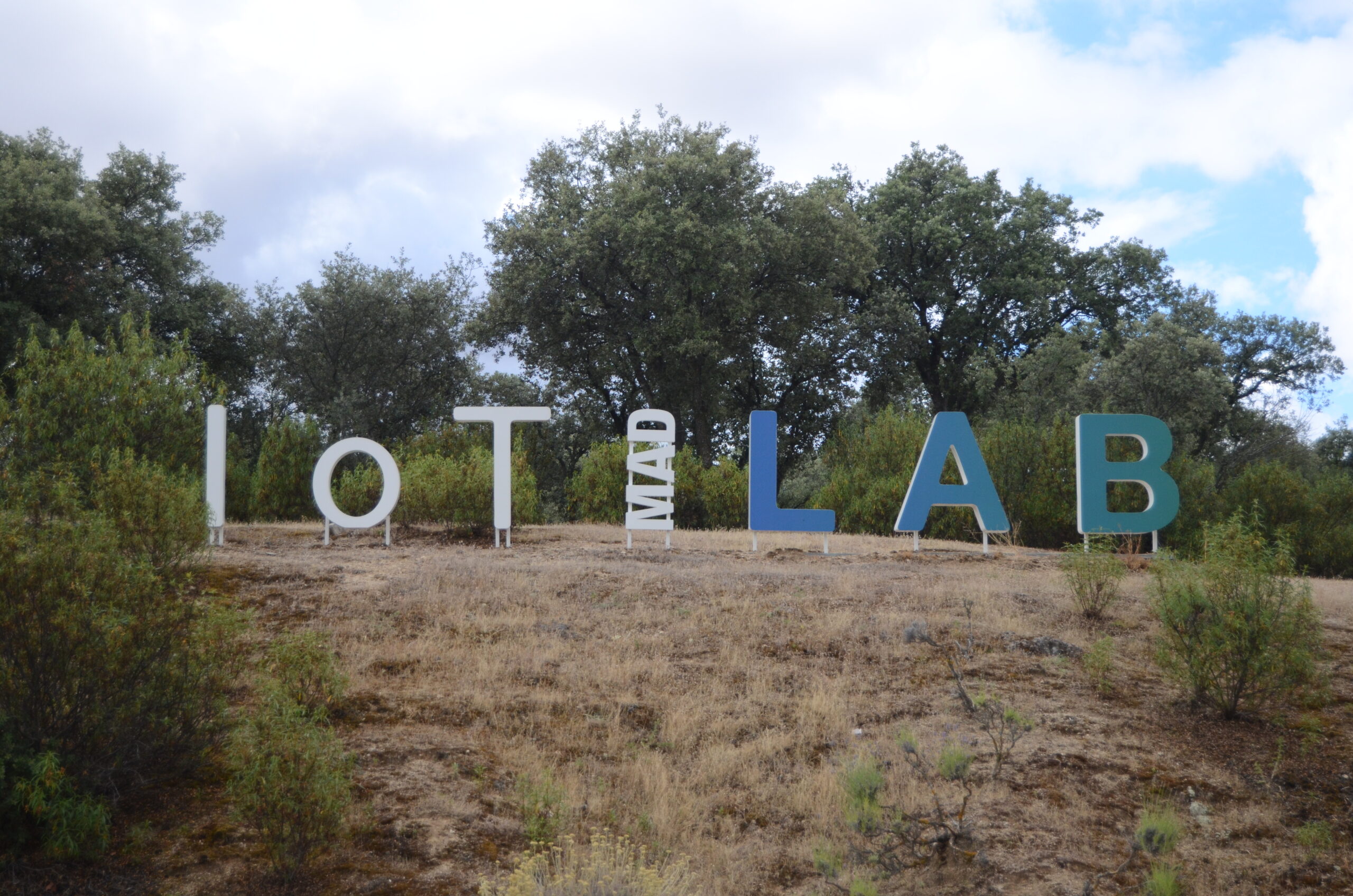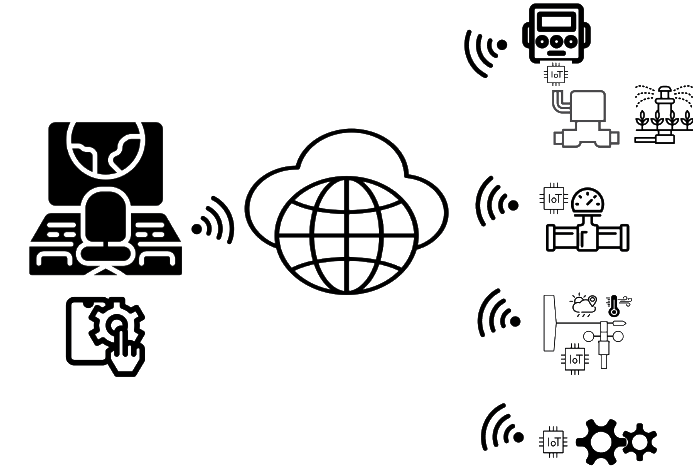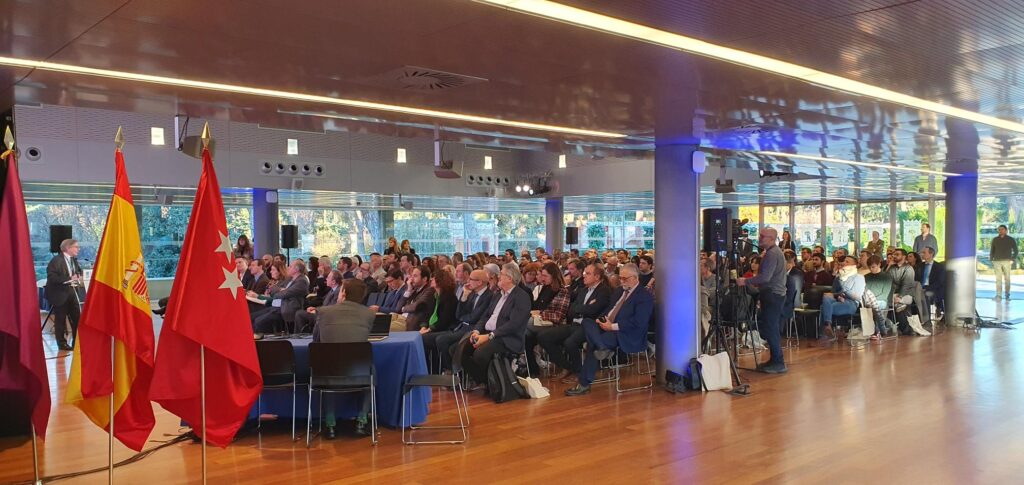Call for projects to pilot a smart urban space in green areas


July 3, 2024
The Madrid Digital Capital strategy includes among its objectives the reinforcement of the so-called city intelligence, to accelerate the intensive use of data in the management of services and promote technological innovation.
Within this framework, a series of cross-cutting projects have been defined, including the design, configuration and deployment of smart urban spaces, which consist of incorporating the maximum amount of data and their interoperability in each of the services, devices, facilities or equipment found in a given area with the aim of advancing in hyper-automation and hyper-connectivity so that the supply of services is adjusted as optimally as possible to the needs of people and the environment, thereby achieving a city that adapts in real time to each person and the conditions of the environment.
This concept arises and is promoted by the strategic lines planned for cities by the main international, European and national organizations and are mainly aimed at accelerating and facilitating the green and digital just transition, the development of smart and sustainable cities or the concept of adaptive city or city 5.0: people-oriented, sustainability and resilience. In this sense, Madrid is at the forefront of the leading cities at European level, which has allowed it to achieve the seal missions promoted by the Government Area of Urbanism, Environment and Mobility.
On the other hand, the Digital Office participates in a European consortium, Govtech4all. In this consortium is committed to experiment in innovative public procurement in govtech, specifically in launching a technological project of a minimum of 50,000 €, whose amount may be improved in the proposal by the bidding companies, pilotable for a minimum of 12 months, using govtech methodology, in which a technological innovation challenge is defined, and this is contracted through a competition of ideas (art 183 of the Public Sector Contracts Act), which are evaluated by a jury or committee of experts.
The project with the highest score will be the one proposed for execution, using the formula provided for in the aforementioned Contracts Law through the negotiated procedure.
This ideas competition will be managed through the collaboration agreement between the Madrid City Council and the Polytechnic University of Madrid for the application of technologies related to smart cities through IoTMADLAB laboratory, which will also manage the project to be implemented in the “Cuña verde de la Latina” park, in collaboration with the Digital Office and the Directorate General of Water Management and Green Areas of the Madrid City Council.
Soon the IoTMADLab laboratory will launch, in collaboration with the Madrid City Council, an ideas competition to solve a challenge consisting of achieving interoperability for connectivity and data exchange in time in a smart urban space to be deployed in an area of the green wedge park of la latina in which at least one smart irrigation system and its integration and interoperability with environmental variables through IoT devices will be contemplated.
It will be required to implement a complete solution to remotely control and automate the irrigation system in an area of about 9 hectares. In this area it will be necessary to supply and install 60 controllers/programmers to control 60 solenoid valves so that irrigation can be activated and deactivated remotely and that will allow an intelligent – automated configuration of irrigation based on preconfigured variables, the environment, in real time and a progressive learning with artificial intelligence to optimize water consumption and optimize the conditions of biodiversity in the area of influence.
It will also require the supply and installation of 5 flow monitoring systems to detect possible water leaks, as well as the installation of 6 weather stations to measure the temperature and humidity of the soil.
Presence sensors will be incorporated in the perimeter to interact in real time with the deployed ecosystem as well as with the water metering.
All these devices must be battery operated or propose equivalent systems that guarantee uninterrupted power supply, including gateway communication capabilities to securely connect to a cloud server for remote operation and automated intelligent management based on business rules and, where appropriate, the application of artificial intelligence.
Finally, it will have an information system that allows remote operation and programming of the irrigation of each solenoid valve, optimizing irrigation in each area based on the information provided by the weather stations both manually and autonomously.
The KPIs necessary for the monitoring and evaluation of the deployed smart urban space and its comparison with a similar control environment must be defined and configured in order to contrast the impact of hyperconnectivity and hyper-automation both in savings and in the quality of the environment and biodiversity.
Priority will be given to the overall energy savings of the solution with the aim of minimizing local maintenance operations for battery replacement, valuing equivalent systems that guarantee the energy supply to the system through self-generation.
The competition will also consider the introduction of other IoT devices in areas other than irrigation that can interact and are useful for the management of municipal green areas.
Those professions, companies or entities interested in participating in this project competition, can indicate it through our contact page and a notice will be sent when this tender is published.


Related news

Madrid City Council Awarded for its Smart City Project
28 September, 2023 The Madrid City Council has won the “Silver Seoul Smart City” award in the “Technological Innovation Project” category for the project “Madrid Data-Based, City Intelligence”. This award is granted by the World Organization of Sustainable and Smart Cities. Fernando de Pablo, general director of the Digital Office of the Madrid City Council, […]

Madrid: Climate Neutral and Smart Cities Mission
13 October, 2023 The City Council of Madrid has been recognized by the Directorate-General for the Environment of the European Commission for its outstanding climate commitment. The city has reached a crucial milestone by receiving the “Climate City Contract” (CCC), a fundamental step in its participation in the Mission of Climate-Neutral and Smart Cities. This […]

Held the First Workshop on Digital Transformation and Cybersecurity
21 December 2023 The Madrid City Council organized on December 15 the First Workshop on Digital Transformation and Cybersecurity to present the results of the “Madrid, Digital Capital” initiative, aligned with national and international strategies. The event took place in the Pavilion of the Cecilio Rodríguez Gardens in Retiro and was attended by more than […]
